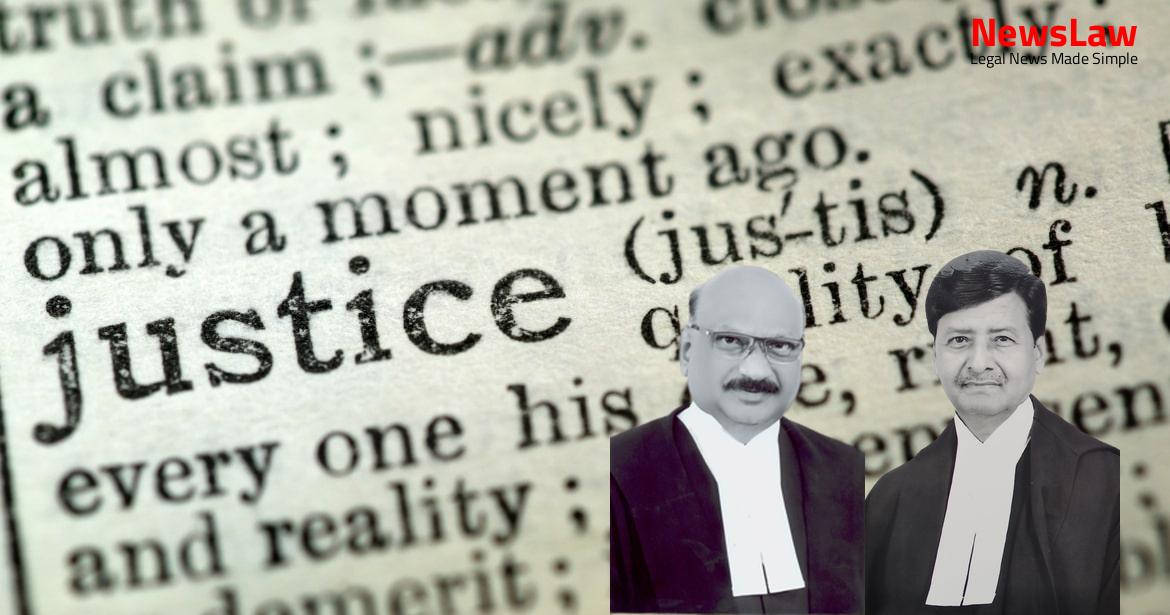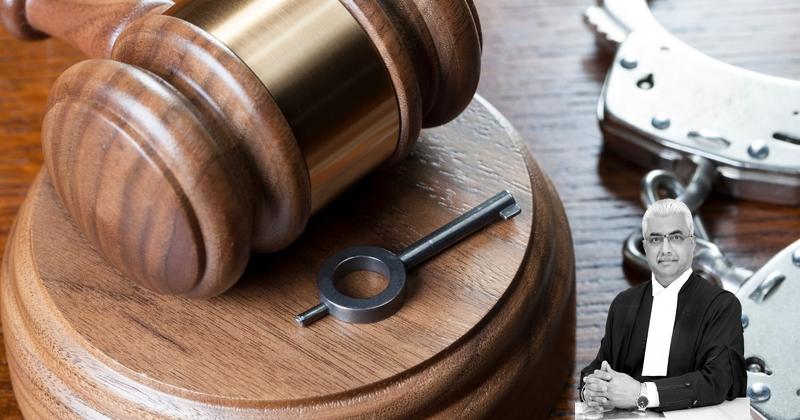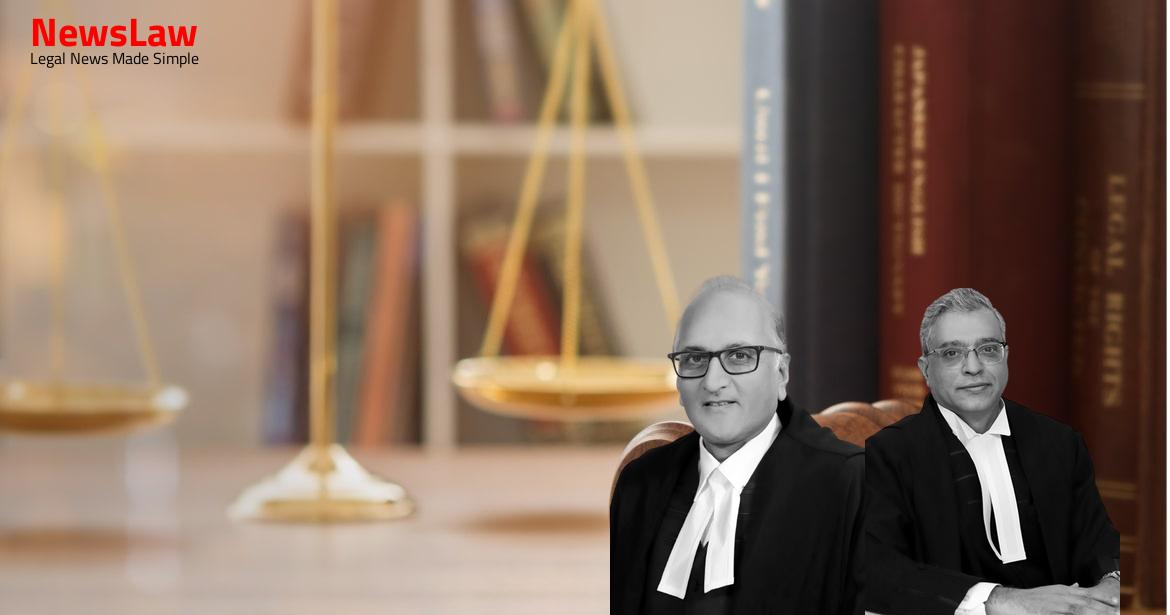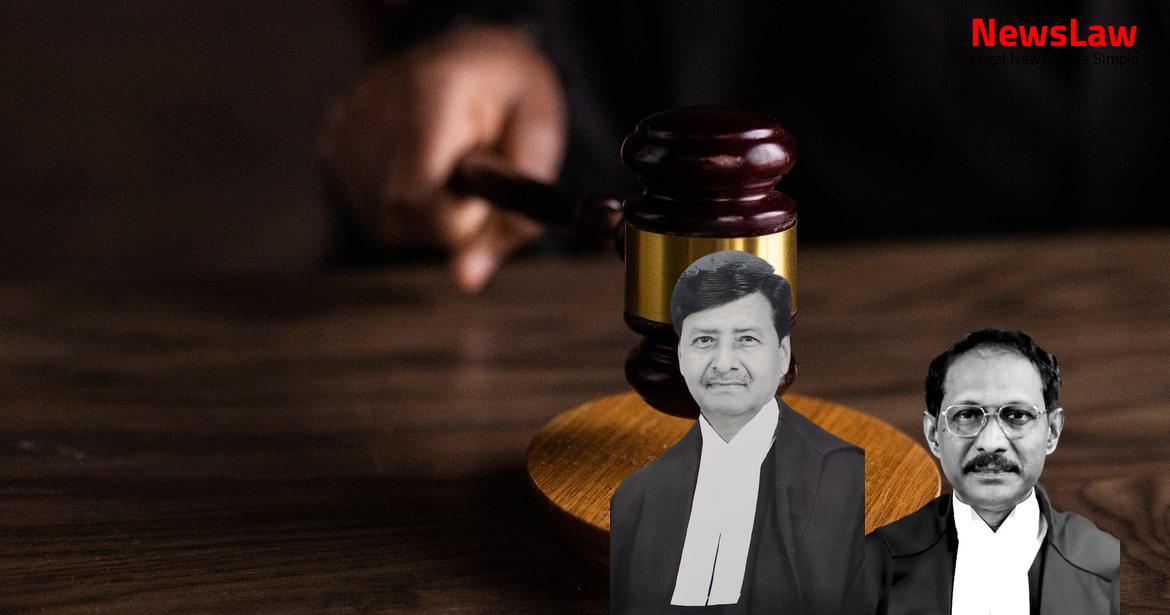In a significant legal case concerning a disputed property, the Supreme Court of India has delivered a crucial judgment between a company and the 2nd respondent. The case revolves around the ownership and possession rights of the disputed property, with implications for corporate law and property disputes. This summary sheds light on the intricate legal proceedings and the ultimate decision reached by the apex court.
Facts
- 2 Respondent failed to execute a deed of conveyance as agreed between him and the vendors.
- Civil Judge (Senior Division) issued a temporary injunction for maintaining the status quo of possession of the disputed property.
- Appellant requested the 2 Respondent to vacate and deliver possession of the disputed property, but he refused to comply.
- Criminal complaint filed against the 2 Respondent for wrongful withholding property under Section 630(1) of the 1956 Act.
- Appellant company applied under Section 630(2) of the 1956 Act to dispossess the 2 Respondent from the disputed property.
- The 2 Respondent claims he was permitted to purchase the disputed property based on an oral understanding with the deceased Arun Kumar Bajoria.
- The High Court held that the lower court’s finding that the disputed property was given to the 2nd Respondent by the company was incorrect.
- Section 630(2) of the 1956 Act was found to not apply in this case, leading to the setting aside of the lower court’s orders.
- Previous decisions where property was allotted by the company to accused officers/employees as a perquisite were deemed not applicable to this case.
- No evidence of a registered deed of conveyance for the agreement for sale dated 26.4.2008 was found, and the company did not pay any consideration or advance rent at the time of the agreement.
- The High Court overturned the findings of the Magistrate and Sessions Judge, stating that there was no proof the disputed property was given to the 2nd Respondent as a perquisite for his service as director.
- The 2nd Respondent had been a director of the company since 1988 and had possession of the disputed property since at least 2001, before the agreement for sale was executed.
- The Sessions Judge dismissed the 2nd Respondent’s revisional application, noting the company not being a party to a civil suit between the 2nd Respondent and vendors did not bar criminal proceedings against him.
Also Read: Tower Infotech Ltd. Bail Order Appeal
Issue
- Whether an application under Section 630(2) of the 1956 Act was maintainable despite the pendency of the civil suit and the issuance of a temporary injunction regarding the disputed property.
- Whether an order could be issued under Section 630(2) before the final disposal of the complaint under Section 630(1).
- If the above issues are answered affirmatively, whether the company is entitled to seek the dispossession of the 2nd Respondent from the property.
- Whether it is necessary for the 2nd Respondent to have been in possession of the disputed property as a perquisite of his service.
Also Read: Priority of Employees’ Dues in Asset Sale: SARFAESI Act vs. Land Revenue Code
Arguments
- The learned senior counsel for the appellant argued that the High Court’s finding was erroneous as it concluded the appellant had no right to claim recovery of possession without a sale deed.
- The 2nd Respondent admitted to delivering the original title documents to the disputed property to the appellant in a letter dated 9.6.2008.
Also Read: Landmark Judgement on Consumer Rights in Healthcare Sector
Analysis
- The accused taking advantage of their own wrong by staying in possession of company property is against criminal jurisprudence.
- Courts may pierce the ‘corporate veil’ if incorporation is used for illegality or fraud.
- An officer or employee under Section 630 includes past employees who wrongfully retain company property post-employment.
- Magistrate directed the accused to vacate and return possession of the disputed property to the company.
- Section 630 prosecutions by companies face challenges from employees holding onto company property through litigation.
- Liberal interpretation of Section 630 for expedited recovery of company property is necessary.
- The purpose of Section 630 is to retrieve company property wrongfully held by officers or employees.
- Magistrate allowed the company’s application under Section 630(2) for interlocutory relief.
- Pendency of a civil suit does not prevent filing a criminal complaint under Section 630 for the same disputed property.
- Accused claiming possession must succeed in civil suit to lawfully possess disputed property.
- The principle laid down in Atul Mathur extends to cases under Section 630 where civil court issues temporary injunction in respect of disputed property.
- The accused has no title to the disputed property, as possession was given to company’s officer, not the accused, after 2008.
- Section 630 is not attracted to the present case as the company has the exclusive right to possess the property.
- Possession given to accused during employment does not entitle them to wrongfully withhold the property after cessation of employment if no independent right is established.
- High Court may use inherent powers under Section 482 of Cr.P.C. to set aside interlocutory orders in exceptional cases.
- Company’s separate legal personality is recognized, and title deeds were handed over to the company, not the accused.
- Civil suit interim relief does not bar criminal prosecution under Section 630. Civil suit’s cause of action is different from the criminal issue of wrongful withholding property.
- High Court erred by strictly interpreting the requirement of the company having ownership title to the disputed property under Section 630.
- The accused’s actions frustrated Section 630 of the Companies Act, and the provision should be construed broadly to facilitate a remedy for the aggrieved company.
- The accused wrongfully believed his relatives regarding title documents, but the agreement for sale gave the appellant the right to possession of the property.
- Injunctions cannot be granted to restrain any person from instituting or prosecuting any proceeding in a court not subordinate to the one the injunction is sought from.
- Injunctions cannot be granted to restrain any person from instituting or prosecuting any proceeding in a criminal matter.
- The civil court passing a decree in favor of the 2nd Respondent in Suit No. 2126/2009 must be honored if it happens
- Possession of the disputed property may be restored to the 2nd Respondent accordingly
- Agreement with the High Court’s direction to complete the trial under Section 630(1) promptly
- If the appellant company fails to prove that the 2nd Respondent was wrongfully withholding possession, the interlocutory relief will be vacated
- No exceptional case of illegality or lack of jurisdiction in the interlocutory order of the lower court, thus not necessitating the exercise of the High Court’s inherent powers under Section 482, Cr.P.C.
Decision
- The appeal was allowed.
- The impugned judgement was set aside.
Case Title: HOOGHLY MILLS COMPANY LTD Vs. THE STATE OF WEST BENGAL
Case Number: Crl.A. No.-001571-001571 / 2019



